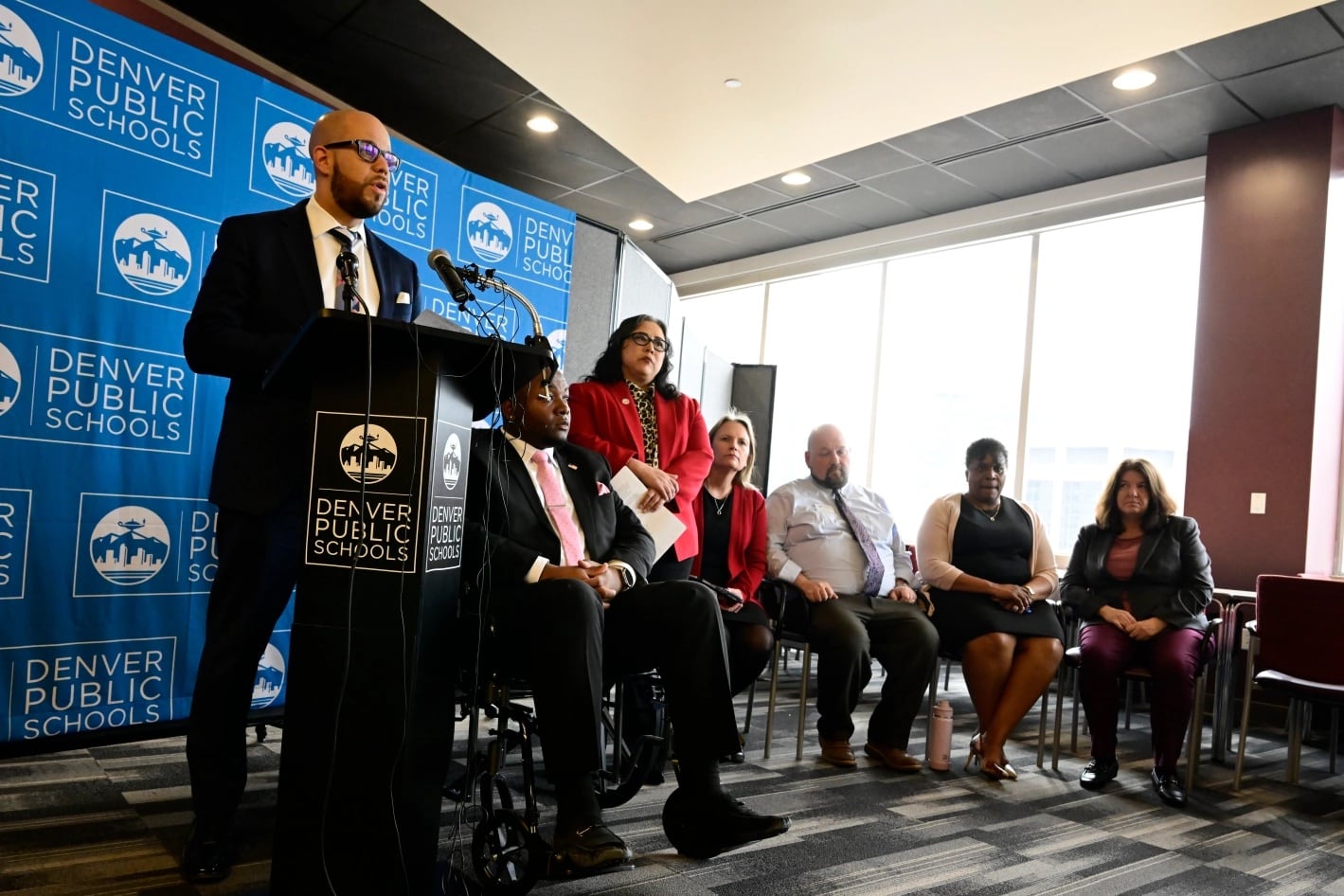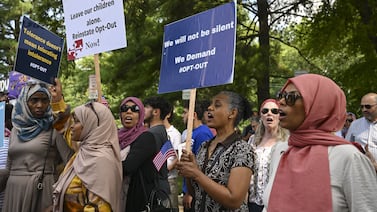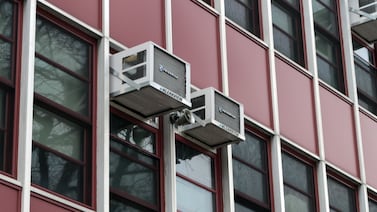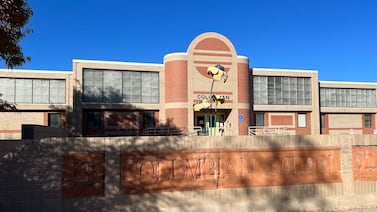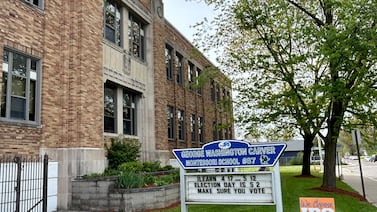Denver Public Schools must release a recording of a five-hour closed-door meeting at which the school board discussed returning police officers to schools, a judge ruled Friday.
The meeting occurred on March 23, one day after a student shot and injured two deans inside East High School before fleeing and later taking his own life. After the closed-door executive session ended, the school board voted unanimously to suspend its policy banning police officers in schools with no public discussion.
That decision would become the subject of three months of intense community debate before the board voted 4-3 this month to make the policy change permanent and allow police in schools at the discretion of the superintendent.
Chalkbeat and six other media organizations sued Denver Public Schools for the recording of the executive session, arguing that the topics were not properly noticed and that the school board may have made a decision in private that was merely rubber-stamped by the public vote.
Colorado’s open meetings law says the “formation of public policy is public business and may not be conducted in secret.”
Denver District Court Judge Andrew Luxen listened to the meeting recording and ruled Friday that the school board “did engage in a substantial discussion” or “adopt a proposed policy, position, resolution, rule, regulation, or formal action” in the closed-door executive session in violation of state law.
DPS said Friday that it will appeal the ruling.
“While we respect the Court, we disagree with the ruling and will be appealing the decision,” school district spokesperson Bill Good said in a statement.
Attorney Rachael Johnson, who represented the media organizations along with attorney Steve Zansberg, said in a separate statement that she was pleased with the court ruling.
“A discussion about the public’s business, especially school safety, cannot be conducted in secret,” said Johnson, who is with the Reporters Committee for Freedom of the Press.
At least one Denver school board member disagrees with DPS’s decision to appeal the ruling. In an email to fellow board members that was obtained by Chalkbeat, board Vice President Auon’tai Anderson expressed concerns about transparency and legal costs.
“Appealing this decision erodes public trust in the school board,” Anderson said in an interview.
He said the board is “already suffering from a low approval rating” and that an appeal “would endorse the message that we are hiding something. And I don’t believe we have anything to hide.” The board should admit it was wrong and do things differently next time, he said.
State law allows elected officials to meet in executive session to discuss certain legally sensitive matters, including staff or student information that must be kept confidential, some contract negotiations, lawsuits, and other topics. The topics and the legal justification for the executive session must be described in a public agenda item.
The day of the East High shooting, Superintendent Alex Marrero told board members in an email obtained by Chalkbeat that he was committed to returning police to schools even though it violated board policy at the time — and he asked for a closed-door meeting for the following day.
But the public agenda item for the executive session didn’t include any mention of the policy around school resource officers.
Instead, the meeting notice said the executive session would cover matters required to be kept confidential according to state or federal law, specialized details of security arrangements, and information about individual students who would be harmed by the public disclosure of that information.
After listening to the recording, the judge found the Denver school board’s discussion didn’t match the meeting notice.
Luxen wrote that he couldn’t identify any matters required to be kept confidential under federal or state law or any discussion of specialized security arrangements.
Instead, he wrote, there was a “lengthy discussion of general security arrangements … including the return of school resource officers to Denver public schools.”
Nor did the discussion cover information that would adversely affect an individual student, the judge found.
“Although there was discussion of an individual student during the executive session, the nature of that discussion would not adversely affect the person involved,” Luxen wrote.
By the time of the Denver school board’s executive session, the student who shot the deans at East High, 17-year-old Austin Lyle, had taken his own life.
The judge ordered DPS to release the recording by Monday at noon.
In a hearing on June 16, DPS attorney Jonathan Fero said the district might object to the recording’s release as contrary to the public interest, even if the judge ruled against the district.
This story has been updated throughout with additional comments and details from the ruling.
Melanie Asmar is a senior reporter for Chalkbeat Colorado, covering Denver Public Schools. Contact Melanie at masmar@chalkbeat.org.

